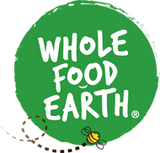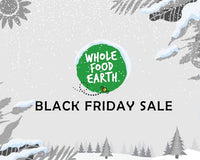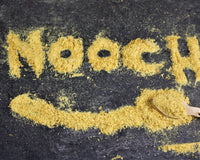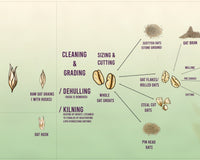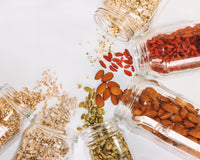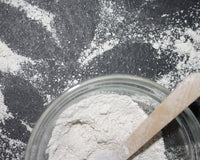If you are following a plant-based diet and you love cheese, then you probably know it. If not, then you've probably seen it in the supermarkets as it has become quite popular in recent years.
Nooch, aka nutritional yeast, is a supplement that adds some cheesy flavour to your dishes. It actually goes well with a wide range of foods, from salads and sandwiches to sauces and soups.
For those who love cheese but for some reason cannot eat it, nooch is a dream come true product and a staple for which they will always find a place in the pantry. Additionally, it offers some health benefits.
Why not try it?
What is nutritional yeast?
Nutritional yeast is a type of deactivated yeast. It is a byproduct of beer making. It is grown on a sugary medium such as molasses and then harvested. Later, it goes through pasteurisation (deactivating yeast) and gets dried.
The resulting product is yellow flakes with a cheesy flavour that you can use for many dishes, especially for vegan recipes (when you cannot use cheese).
Nutritional benefits of mooch
Nutritional yeast naturally contains protein, fibre and fat, and B vitamins: thiamine, riboflavin, niacin, plus iron, potassium and chromium.
Usually, the nutritional yeast available online is fortified with vitamins, such as B12 (perfect for those on plant-based and vegan diets), and it has much higher nutritional value. Only fortified Nooch will contain b12, niacin (vitamin B3), pyridoxine hydrochloride (vitamin B6), riboflavin (vitamin B2), thiamin hydrochloride (vitamin B1), folic acid, vitamin B12].
Unfortified nutritional yeast contains fewer nutrients.
Health benefits of nutritional yeast
There isn't a lot of research on the health effects of consuming it yet, but it is known that it can help with some health problems. It is a great source of B12, which is very important for vegetarians and vegans. Those diets are at bigger risk of B12 deficiency, which may lead to fatigue, headaches, diarrhoea, neuropathy, weakness, numbness, even pain in the hands and feet and nervous system damage.
B12 naturally appear mainly in animal-based foods, not plant-based foods. Therefore vegans and vegetarians should regularly consume B12 supplements to maintain healthy levels of this vitamin. Fifteen grams of fortified nutritional yeast contains about 730% of the daily need for vitamin B12. It's very easy to get your B12 with a bit of nooch on your meal.
However, remember that in the case of B12 deficiency, nutritional yeast is not as effective as supplements. You should always consult your doctor for diagnosis and treatment.
Nutritional yeast contains fibres called beta-glucans. According to research focused on supplements and other foods containing beta-glucans such as oats, consuming foods rich in beta-glucans can help lower cholesterol levels and improve blood sugar regulation.
However, it's still unclear how the beta-glucans found in typically consumed amounts of nutritional yeast impact health.
Adding flavours to your meals
Nooch can make your meals more enjoyable, richer in flavour and more filling. It contains a good amount of protein (8g per 15g of serving) and fibre (3 grams of fibre per 15 grams of serving). The combination of protein and fibre will make you fuller for longer and more satisfied with your meal. Nutritional yeast is a simple and delicious way to boost your nutrient intake and add dairy-free cheesy flavour to your meals.
Ways to use nutritional yeast
Nutritional yeast is dairy-free and has a savoury, nutty, cheesy flavour. The easiest way to use nutritional yeast is to sprinkle it over your favourite foods. It can be used for all kinds of recipes, including salads, beans, lentils, pasta, stews and more. It will add or intensify the flavour of any dish.
It's also low in sodium which is a good option who wants to cut on salt. It will help you create the umami flavour without using too much salt.
Nutritional yeast is great for making sauces; for example, you can make a vegan cheese sauce as an excellent topping for potatoes and eggs. You can also add nutritional yeast soups, pasta and healthy snacks such as nuts and seeds for a more cheesy flavour.
Fortified vs Unfortified
Fortified nutritional yeast (15-gram serving) / Unfortified nutritional yeast (15-gram serving)
Calories 60 / 60
Protein8 g / 8 g
Carbs 5 g / 5 g
Fat <1 g / <1 g
Fiber 3 g / 4 g
Thiamine (B1 )980% of the Daily Value (DV) / 200% of the DV
Riboflavin (B2) 750% of the DV / 6% of the DV
Niacin (B3) 290% of the DV / 90% of the DV
B12 730% of the DV / 0% of the DV
Potassium 6% of the DV / 7% of the DV
If you're buying fortified nutritional yeast, the ingredients list will look like this:
Ingredients: Inactive nutritional yeast [dried yeast, niacin (vitamin B3), pyridoxine hydrochloride (vitamin B6), riboflavin (vitamin B2), thiamin hydrochloride (vitamin B1), folic acid, vitamin B12].
For unfortified nutritional yeast the only ingredient will be dried yeast and the label will look like this:
Ingredients: Dried yeast (Saccharomyces cerevisiae)
